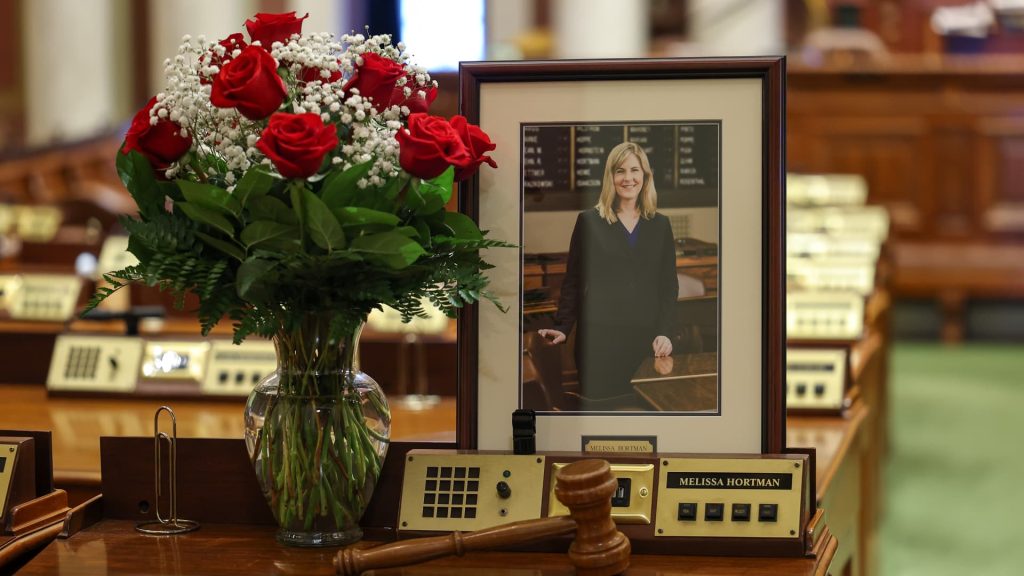Federal prosecutors have charged Vance Luther Boelter, a 57-year-old suspect, with multiple offenses including the murder of Minnesota state lawmaker Melissa Hortman and her husband, as well as the shooting of another lawmaker, John Hoffman, and his spouse, Yvette Hoffman. Authorities describe the actions as chilling and indicative of a meticulous plan to target elected officials, potentially influencing the state’s political environment. The case has prompted widespread concern regarding the safety of elected representatives.
| Article Subheadings |
|---|
| 1) Overview of the Incident |
| 2) Details of the Charges |
| 3) The Manhunt |
| 4) Political Implications |
| 5) Community Reactions |
Overview of the Incident
The shocking events began early Saturday morning when Vance Luther Boelter allegedly targeted the residences of four Minnesota state lawmakers. This coordinated attack culminated in the lives of state Representative Melissa Hortman and her husband being tragically cut short. Moreover, John Hoffman, a fellow Democrat in the Minnesota Senate, and his wife Yvette were shot but survived. This brazen act of violence has left many questioning the safety of elected officials and the state of political discourse in Minnesota.
Details of the Charges
Federal prosecutors have levied a range of serious charges against Boelter, including first-degree murder and various firearms offenses. According to Joe Thompson, the acting U.S. attorney for Minnesota, these crimes tap into the very essence of a functioning democracy. In his statements, he emphasized that “political assassinations are rare,” drawing attention to the chilling nature of Boelter’s actions which were premeditated in nature.
Boelter faces both state and federal charges regarding the crimes carried out on the weekend. Prosecutor Mary Moriarty confirmed that they intend to pursue first-degree murder charges, which could result in a life sentence without the possibility of parole if he is convicted.
The Manhunt
The suspect was the focus of what has been described as the largest manhunt in Minnesota’s history, following the initial outbreak of violence. Authorities acted swiftly, launching an extensive search effort that lasted for more than 24 hours. They reported that Boelter had gained access to the victims’ homes by impersonating a police officer while wearing a mask. This deceptive tactic allowed him to commit the heinous acts.
Late Sunday evening, authorities located Boelter in a rural area of Sibley County, where he was found crawling through a field. Although he was armed when captured, no shots were fired during the arrest. The discovery of his vehicle and personal items earlier that day led law enforcement to intensify their search efforts in the region.
Political Implications
The implications of this violent act extend beyond the immediate tragedy, fueling discussions about the security of public officials. The Minnesota Governor, Tim Walz, has expressed that the attacks appear to be politically motivated, which could impact legislative agendas and generate discussions related to improving security protocols for lawmakers across the state. Moreover, the actions of Boelter could incite fear among those in public office, potentially resulting in a chilling effect on their capacity to serve effectively.
Political experts suggest that such violent acts against lawmakers could lead to a polarization of views between officials and their constituents, complicating the already tense political climate. The necessity for securing public officials is now a growing concern, fundamentally questioning the safety of those who represent communities in legislative assemblies.
Community Reactions
The brutality of the events has sent shockwaves through both Minnesota and the larger American public, leading to expressions of grief and outrage. Local communities, as well as civic organizations, have called for a renewed commitment to combating political violence and fostering dialogue focused on civil discourse. Key figures, including activists and public representatives, have urged their followers to remain vigilant while emphasizing the need to stand against violence in all forms.
Memorials have started to emerge, honoring the memory of Melissa Hortman while supporting the surviving victims of the attacks. Grief counselors are also made available to those affected by this tragedy, specifically focusing on creating safe spaces for discussions about such incidents, their implications, and how to move forward positively in a peaceful manner.
| No. | Key Points |
|---|---|
| 1 | Vance Luther Boelter charged with murder and firearms offenses. |
| 2 | The attack resulted in the deaths of state Representative Melissa Hortman and her husband. |
| 3 | Boelter impersonated a police officer to gain access to the victims’ homes. |
| 4 | Authorities conducted a record-breaking manhunt to capture Boelter. |
| 5 | Political implications are prompting discussions about the security of lawmakers. |
Summary
The assassination of Melissa Hortman and her husband, along with the shooting of John Hoffman and his wife, marks a tragic and alarming moment in Minnesota’s political landscape. These events raise urgent concerns regarding the safety of elected officials and the need for meaningful dialogue around political violence. The extensive response from authorities and the community highlights the need for collaborative efforts in addressing both the immediate impact of the violence and the broader implications it holds for the future of democratic discourse.
Frequently Asked Questions
Question: Who is Vance Luther Boelter?
Vance Luther Boelter is the man arrested and charged with the assassination of Minnesota state Representative Melissa Hortman and her husband, as well as the attempted murder of state Senator John Hoffman and his wife.
Question: What charges has Boelter faced?
Boelter faces multiple charges including first-degree murder and firearms offenses at both the state and federal levels.
Question: What was the response from political leaders in Minnesota?
Political leaders, including Governor Tim Walz, have expressed concern over the politically motivated nature of the attacks, emphasizing the need to ensure the safety of elected officials.
